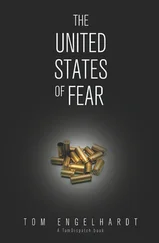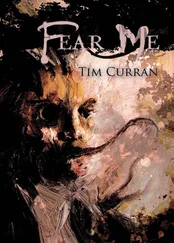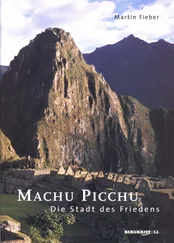The night Joseph left The Tides was clear and cold. He had packed two suits of clothes, some linen, a small loaf of bread, some cured salt pork, and three pairs of socks — a luxury. His banjo he carried in a cinch bag made from a grain sack. He carried two other items as well. Out of Master’s lodge room that evening he had taken a pair of new leather boots that he planned to wear; his other shoes were in his carry sack, along with the copy of David Copperfield that he had stolen from Master’s library. In his jacket he had a sharp knife in a goatskin sheath for protection, and in his breeches pocket a small folding pocketknife.
Joseph was to light out for the river when the moon cleared the eastern tree line and then head north, walking at a steady pace until the moon was halfway across the sky, when he would come to a boathouse. He would need money, about fifteen dollars, a not inconsiderable sum. The boatman would then tell him what his next steps would be.
At the last moment he had been affected with pangs of loss and misgivings. The cabin he shared with his mother was comfortable and familiar. Above all, his mother’s arms and reassuring voice. As he lay warm in his bed for the last time, waiting, part of him rebelled and wanted only to stay there, warm, and not go out under the cold night sky on a trip with no end. Finally his mother shook him by the shoulder, and Joseph said, quietly, “I’m awake.” He sat up, already fully dressed, and put on the boots.
“Those belong to him,” she said.
“No more,” Joseph said, tying them.
She sat, watching her son prepare to leave. He tried to show no weakness that would make her doubt his readiness, and she made the same effort.
“You have the money I put up?”
“Yes,” he said. “Inside here.”
When he was ready he hefted up his sack, which had a strap she had sewn on, for slinging over his shoulder. It was heavier than he would have liked, but it contained necessities. Before he picked up his banjo, he and his mother looked at one another by the dim light of the one candle.
“You go,” she said.
He had planned to be strong, afraid of breaking down and losing his resolve. But at the last moment he put down the bag and came to his mother, who closed her eyes as if she had wanted to avoid a final goodbye. He embraced her; her body was rigid with the attempt to resist the grief this moment brought. After a moment, one arm went up behind his back and she held him to her, strong at first, then more strongly. Then she said only, “Don’t let them catch you. Ever. Go now.”
He picked up his bag again, and the sack with the banjo, and he made his way to the back door of the cabin, and before he could turn around to look at her again she blew out the candle and the room went dark.
He walked miles of shore, making his way along the forested banks. There were two long stretches of open land where he was able to make good time, but where he was also exposed in the moonlight. He was too intent to be frightened; all his senses were alert, focused on the single goal of reaching the boathouse. He wore the hunting boots and carried his other shoes in his bag because they were lighter. When the moon was high up overhead, he came to a small creek, and, across it, saw the low house with three rowboats tied up alongside.
They had not told him what to do when he reached the house, and there was no light in the window. He sat among the trees and watched and listened; the sound of the trickling creek was time itself running through the night, and finally he decided to cross at a narrow place and knock on the cabin door. He knocked very softly and watched for a light to go on. At length a door opened into a dark interior and a voice said only, “Walk to the second boat and wait.”
The rowboat wobbled as he stepped in, and he kept his weight low, sat down. After a few minutes the boatman appeared, got in, requested Joseph’s money, and pushed off. After the initial transaction they didn’t speak, and as the overhanging trees gave way to the starry sky and they moved away across the water under the immense vault and he saw the land retreating behind them, falling away, he felt the size of what he was doing, suddenly exposed and vulnerable, for the first time.
On the far shore they tied up and the man told him where to walk, following the banks of the Choptank, told him about a series of landmarks, and then how to find his way to Delaware. As the boatman made ready to leave, Joseph nearly asked to be carried back across; he allowed himself to imagine going back overland and making it home to the farm before daylight. And as he imagined it, he knew he would not do it, and that he would never go back.
Four more nights walking until the first hints of coming light in the sky, the first birds darting across a treetop to a barn, and days sleeping in cold barns and in the woods — he had never been so cold — first along the Choptank and through Tidewater Maryland, making his way by the stars, then Delaware, and a bed for a night in Wilmington with people who gave him identification papers and a new name — Henry Sims — and directions to an address in Philadelphia. A morning steamer carried him up the Delaware River, finally docking at the foot of Arch Street in the late afternoon. From the top of a hill the lowering sun blazed into his eyes amid a tangle of noise, shouted orders, cart wheels on cobblestones. He stepped off the packet boat to take his first steps on solid ground as a free man.
Experience was instantly more dense. Walking up the hill from the river — the shops, the signs for stoves, shoes, rope, eyeglasses. . Everything was someone’s idea, everything was multiplied. The sky took less of the world, replaced by buildings. There were alleys and walls and places to hide, to appear and disappear. The last of the most recent snow still blurred the streets and superimposed webs of pointless lines, maps of nonexistent terrain, a second skin. In Virginia when snow covered the ground it revealed clear footprints, showed where one had walked. Here your footsteps would be constantly erased, and that was fine with him. There were overlapping rhythms, constantly changing patterns. That much was instantly clear.
He climbed the hill, found Fifth Street, and turned right on a shadowy sidewalk, following the directions he had committed to memory. Numbers, which he knew, as he knew how to read words, from his mother. The houses needed the numbers. Not The Tides’ smokehouse, dairy, washhouse, wood shop, blacksmith. Instead, the numbers that ordered everything, implied a progress.
A door the color of dried blood opened onto a short woman with blue-black skin, who gave him an approving once-over.
“Mister Still gone for the day.” She spoke in a West Indian accent that he recognized; three of the house women at The Tides were from there. They had a little society of their own, laughing and chattering like magpies over the laundry, nonstop. “He know you was coming?” Someone said something from a room beyond and she laughed.
An oil painting, oil lamps, narrow stairway going up on the left, carpeted. A mirror.
“Wait here,” the woman said. “Where you came from?”
“Virginia.”
“I got cousin family there. What you got in that bag?”
“A banjo,” Henry said.
“Ooooh. Play me a song. Them Quaker don’t like music, no.”
A large, very black man appeared in the doorway from the back room, saying, “Please get finished so we can go home.”
Looking at Henry, the woman said, “You going to have lots of company. Listen to what Sam say — him boss man ’til Mister Still come. You play me a song sometime?”
When she disappeared, the man named Sam addressed Henry, saying, “You were on the packet boat, from Wilmington?”
Читать дальше










